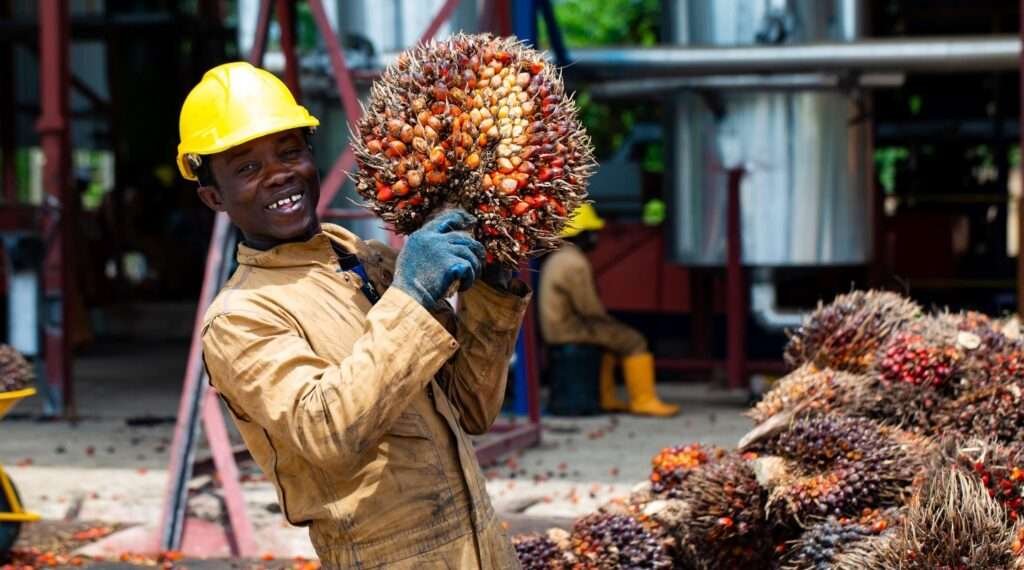The Oil Palm Development Association of Ghana (OPDAG), has called on government to immediately reconsider its decision on the indefinite suspension of the implementation of the review of the 50% benchmark policy reduction.
Executive Secretary of the Association, Selorm Quame, revealed that local processing companies outweigh the demand in terms of their capacity to supply. As such, thousands of jobs will be lost if the suspension goes unabated.
Mr Quame indicated that currently, two of the “biggest refineries” in the country have shut down their refineries owing to their inability to maintain their operations. He noted that what this development directly translates into is the loss of jobs for people in the country.
“Especially for the oil palm sector, we have the local production [outweighing] the demand of the people. So, we don’t see the reason why government will give a discount or a reduction to imports of oil palm products into the country, whiles there are companies or industries that are producing the same products in Ghana and the products that they are producing is more than the consumption of the general public. That is why we are calling for an exemption. If this policy is not reversed or if oil palm and its products are not exempted from the policy, there’s going to be a lot of loss of jobs. That one, we can assure you”.
Selorm Quame
It will be recalled that government stated January 17 as the day for the broader consultation on the implementation of the reversal of the benchmark policy with relevant stakeholders. Nonetheless, a statement from the Ghana Revenue Authority (GRA) on Thursday, January 13, 2022, stated that the indefinite suspension is to enable further engagements with all relevant stakeholders.
Benchmark value policy at variance with government’s industrialization
Meanwhile, the newly inducted President for the Association of Ghana Industries (AGI), Dr Humphrey Ayim-Darke, has revealed that the benchmark value policy which has been a subject for debate among industries and the trading community in the country is at variance with government’s intention of industrialization.
Speaking at his induction ceremony, Dr Ayim-Darke noted that government has opted for industrialization, hence, its need for various initiatives such as the One District, One Factory, Planting for Food and Jobs and other related policies. The newly inducted AGI President believes that industrialization is one of the surest ways of creating sustainable jobs and ensuring economic growth in the medium to long term.
“It is in this light that the AGI raised concerns with the introduction of the benchmark reduction policy which sought to reduce cost of imports into the country. After two years of implementation, it appears that it is detrimental to the development of industries in Ghana. Furthermore, it is at variance with government’s own industrialization agenda”.
Dr Humphrey Ayim-Darke
The benchmark value, which is the amount taxable on imports, was reduced by 50 percent for some goods, with the import value for cars being reduced by 30 percent. Government through its implementation envisioned it would make the country’s ports competitive by increasing the volume of transactions and increasing revenue generated at the ports. However, with its move and intensifying of its industrialisation drive, critics like the Association of Ghana Industries have called for a review of the benchmark value reduction policy.
READ ALSO: BHP Joins the Bandwagon for Electric Rail in Australia




















